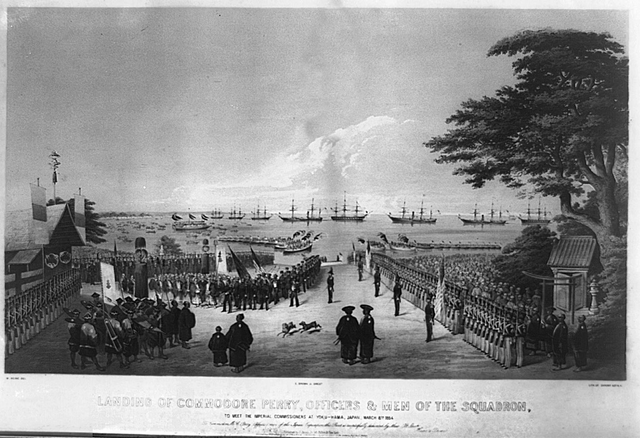Popular Narratives Of History Are Naive
If you want to find out how naive, just read any internet discussion forum frequented by ordinary people or the comment section of a YouTube video about a historical event or something. Compared to prevailing popular understandings of history, I recall school history to actually have been of reasonably high standards.
WW II is a topic that still sparks passions. Debates by average people tend to be rife with passions and narrow views. The problem is made worse by Hollywood and its counterparts in other countries. Few documentaries on channels like National Geographic manage to add anything new.

In American popular mythology, Pearl Harbor is where it all begins. Where it all really begins is the Perry Expedition (two visits: in 1852-1853 and 1854) in which commodore Perry was given the task to take two American warships to Tokyo to open diplomatic relations with Japan and to force open Japan to trade with the US thus ending the long-standing Japanese policy of isolationism. Others, including the Russians and the Dutch had been attempting to get the Japanese to end their policy of isolation before.
An internal debate as to what to do about the implied threat to Japanese sovereignty ensued in Japan. The foreign trade led to major economic crisis, devaluation of currency, and an outflux of gold from Japan. The crisis was bad enough to lead to the end of the Tokugawa Shogunate followed by and rapid modernization. After that, Japan was bound to find itself in conflict with the old colonial powers because the only way for a large industrial nation to secure access to vital raw materials at the time was to have a colonial empire of its own. Japan was the real sleeping giant the outside world forced to open to the world with known consequences.
In WW II, Japan knew its resources were small compared to the major colonial powers. The Japanese strategies all made sense, including the surprise attack on Pearl Harbor. The invasions of Korea, Manchuria and China before were nothing but garden variety colonialism motivated ultimately by economic necessity. It escalated from there and the final straw was the oil and steel embargoes by the United States in the summer of 1941. After that, Japan was forced to act quickly to conquer Southeast Asia and to deliver a knockout blow to the US Navy to keep it from interfering while Japan was implementing the initial phase of the plan, which was to defend the holdings of the empire in a war of attrition that would be too much for the Allied.
What saved Japan's bacon in the end was the division of the world into the US led capitalist bloc and the Soviet led socialist bloc. An economically strong Japan was needed as a bulwark against communism in East Asia. The era of colonial empires came to and end by the end of the 1960s and after that all the capitalist nations were able to purchase their vital raw materials through the London and New York stock exchanges, which is where international commodities trade remains focused to this day.
Hi @markkujantunen!
Your post was upvoted by @steem-ua, new Steem dApp, using UserAuthority for algorithmic post curation!
Your UA account score is currently 4.093 which ranks you at #3618 across all Steem accounts.
Your rank has not changed in the last three days.
In our last Algorithmic Curation Round, consisting of 88 contributions, your post is ranked at #31.
Evaluation of your UA score:
Feel free to join our @steem-ua Discord server